Black and white thinking limits our perception.Knowledge and theories play important roles regardless of our job and field. But as 'Intelligent' evolved beings we are also good at overdoing it, meaning we put more effort into our thoughts than into our actions. We often mean well, but lack the motivation, peers, teachers or environment to help us grow or change tactics. So we keep sticking to our black-and-white perceptions, never taking a step outside the box. But the one thing horses often ask from us, is to step outside and destroy the box because this particular case and horse needs a whole other approach. But if we're only comfortable with doing what we've always done, our methods will start to atrophy. Comfort only takes you so far. We become blind to the slivers of information that horses provide us in those moments in between: The Gray Area, the fundament of exchanging information. 'Before there's fear, there is distrust, then trust Before there is anger, there is hurt, then peace Before the storm came, there was silence and before that, there was play' We often only notice the Black or White, the present or missing element. We let things escalate into a full blown storm, do nothing when there is play and often don't even notice a horse getting quiet. But it is in that silence that we find our answers, the truth we've been looking for that is only perceivable through an attuned mindset.To be aware of what our horse needs and if we can provide exactly that. We not only need to be comfortable with finding and working in the Gray Area, we also need to be comfortable to revisit it frequently. Don't be afraid to work on your fundamentals.
0 Comments
Weber's Law in Horsemanship Before I dedicated myself 100% to Horsemanship, I studied Marketing/Public Relations. It wasn’t necessarily my first choice, but I found it very interesting and since there were no proper studies about Horsemanship in The Netherlands, I chose something else entirely. Weber's Law is a big thing that research and Marketing companies use all the time, for instance when creating a new advertisement or campaign that we see on TV. 'Weber's law is the idea that the just noticeable difference (or JND) between two stimuli is a constant proportion of the intensity of the original stimulus'. Think about loud music or TV noise; it doesn't seem as loud if you've been in the room for a while, but it's loud for someone who just entered the room. The JND is sometimes called 'the difference treshold' since it's about the smallest stimuli that a person (or animal) will or can detect. In the World of Marketing this Law means gradually changing the ingredients of a product, or adding/reducing certain amounts or contents of a product. The change is so small, people don't notice the difference. In the World of Horsemanship, it gets slightly more complicated; horses aren't people, so Weber's Law applies a bit different to them. What we as humans wouldn't notice because the change is too insignificant, is what horses notice immediately. Our JND's are wired differently to observe and process things in different ways, depending on what's important to us and them. Body Language (Non-Verbal Communication) would probably be on top of the list: Where we humans foremost rely on our developed, spoken language, animals rely on their ability to read and express Non Verbal cues. Unless you practice this on a regular basis (like dancers do), non-verbal cues can be difficult to read or pick up on at first. To give you some insights, scroll down to read about 9 types of Non-Verbal Communication Types. What's a Type that you've mastered, or having difficulties with? What's a JND your horse immediately picks up? Maybe it's when you're wearing perfume (when you normally don't) or when you're feeling tense in your body? What's something your horse always notices? 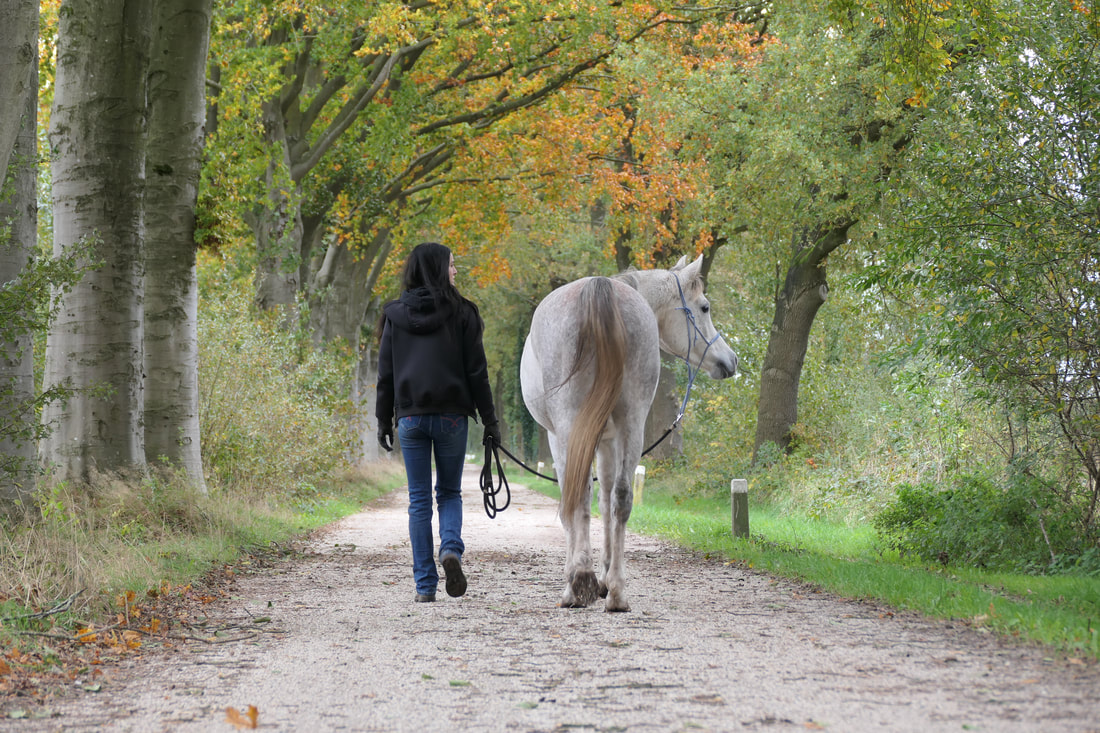 Love, Zoë van Mourik | Equine Trauma & Behavior Specialist www.zoevanmourik.com & www.houseofhorsemanship.nl I love my job. It might not always be fun, but it is fulfilling. And some days or moments are neither, just like in any other job or work field. One of the reasons I couldn't function in an office environment was the insensitivity (varying from not really being (emotionally) aware to straight up bullying) of people toward each other. Everyone seemed to eagerly participate in the rat race, only to burn out after some time, but not before doing some unhealthy and heavy unloading on coworkers. They call it 'success' and 'winning'. Something I am maybe just too sober to understand. What I do understand is the horses who are feeling just like this, every day. Stalled in closed off environments, without proper food, exercise or even friends. Moving from place to place, switching owners more often than seeing a vet or bodyworker. being bored for 23 hours a day and give everything in the one hour of work and never having the experience of having a home, safety and stability. I cry in my car when I leave places like this. I ask myself and wonder why I quit working in an office. Why I am witnessing so much stuff I'd rather know nothing about, instead of feeling blissfully unaware about the heartaches and pain in this world. I guess I feel helpless during those times and I curse and cuss in my car until the tears come. By the time I'm home I usually got everything out and then I need to remind myself that I can't change anything, not a SINGLE THING just by myself. Like we say with rescue horses and missions: 'It takes a village'. Change can only happen through the efforts of people who aren't afraid to break the mold. To mercilessly slam on the breaks at the first sign of downfall instead of blaming it on someone or something else. Please hold yourself and others accountable when you stumble on situations like these and speak up on behalf of the horse in the present and in the future. Love,
Zoë van Mourik | Equine Trauma & Behavior Specialist www.zoevanmourik.com & www.houseofhorsemanship.nl 'For the Horse' If you're here to see sudden and big movements, then you're not here for the horse. If you're here to see me push my methods with no regards to how the horse is feeling, then you're not here for the horse If you came to my demo's and expected spectacle and high intensity, chances are there is a need within yourself that is not being met. What is keeping you from being calm? What is keeping you from experiencing joy when watching a relaxed horse? Because it's definitely not normal to seek out demo's and events that feature scared and stressed out horses. This is a BIG sign that beneath your hard exterior, you yourself could thrive with some help, like a listening ear or a supportive voice. 'A Traumatized person can recognize a Traumatized horse' Why do we have to go through things ourselves in order for us to be able to recognize trauma in another being? Why aren't we by default able to spot sadness, fear, distrust, pain? Why are people so hot for stressed out and uncomfortable horses, while this stems from trauma? Would you treat your child like that, when he is confused or scared? Would you laugh at them too, or make things worse by forcing them to do something? If so, then yes; you're abusive. And you're definitely not doing it for the horse. Please be mindful of the events and people you visit; you either support the wrong kind, or the good kind. There is no inbetween. Love,
Zoë van Mourik | Equine Trauma & Behavior Specialist www.zoevanmourik.com & www.houseofhorsemanship.nl I forgot where this line is from, but I do remember encountering this sentence frequently while in my early years of therapy. I had just started going down the rabbit hole to help diminish my depression and anxiety, when people, movies and even books kept spouting these words. I didn't think much of it, until I lived in California years later. During one of my talks with a friend we discussed the hardships of having your own company and mainly: creating and keeping a well-established client base. 'How do you get clients? How do you keep 'em? How do I know which steps to take, choices to make? FOMO!!' Just a summation of what keeps many entrepreneurs up at night, and what keeps us going through the day. But after the chase comes exhaustion.. Manifesting clients, work and opportunities feels like a better solution to me. Instead of chasing stuff and people, we attract them. And only what we really want or need, not just for the sake of making more money (except of course when that ìs your primary focus/need). It's how I came to work at several beautiful places in the US and even became head trainer at a wonderful, large incorporation with amazing people. I felt like I was in over my head, yet my heart already resonated with everything it could find in my surroundings. So I went, only where I was already celebrated and eventually my head and heart started synching. The knowing, the feeling. The intuitive and the thinking. Rational and emotional, all vibrating at the same level and for the same goal: To celebrate that you are celebrated. To know you're welcome. To know yourself. And once you do, nothing and no one will ever come close to distracting us with chasing, needing and comparing ever again. Here, we do not chase or 'hustle'. We align and the Universe manifests accordingly. Love,
Zoë van Mourik | Equine Trauma & Behavior Specialist www.zoevanmourik.com & www.houseofhorsemanship.nl How do you safeguard or guarantee your vision and mission in the (Equine) world? A lot of us are excited when we begin our (small) businesses. We feel grateful for the opportunity, freedom and interest in our work, but those feelings can easily become overshadowed by something else: Reality. We face obstacles, high expectations from ourselves or clients that we can't possibly meet. Basically, there are 2 ways of dealing with this; we adjust our mission to our clients wishes or we adjust our clients to fit our mission. Meaning we either disappoint our clients, or ourselves. Years ago, I decided on the first. 'But don't you want to earn money?! No. If making good money was my intention, I would have chosen an office job or pursued other fields I find interesting. But that's not why I chose horses; I chose them, for them. Sometimes this means turning down clients with 4 year old horses they want me to start, because I feel like it's too soon. It means saying 'No' to coming over when the issue is poor stable management. Letting go of clients who aren't able to work outside of a fixed time frame is also something I've done numerous times. And all of this felt sh*tty at first, like I was a fraud for not complying or fulfilling everyone's wishes. Time went by and almost overnight, things changed because I refused to. Coworkers, horses and clients aligned with my mission and methods, which gave me the confidence and freedom to only accept clients I feel comfortable helping. Where mutual honesty and respect are just as important to us as they are to our horses. And where safeguarding all of this and all of us is of utmost importance. Love,
Zoë van Mourik | Equine Trauma & Behavior Specialist www.zoevanmourik.com & www.houseofhorsemanship.nl In the US, this type of training is more accepted among trainers and owners than in the EU. When the owner of a ranch I worked at, was asked by a friend how to deal with a new horse that isn't used to being around people much and help it become a family horse, her answer was "train him". Time went by and the friend asked again what to do, because no matter what she did the horse didn't seem to be as accepting of everything like she had experienced from the horses at the ranch. So again, the owner said: Train him. But don't train him like you do the average horse; don't work him in the round pen, of have him go on for miles out on the trail to become bonded. Instead she suggested 'Family Training'. Consisting of hanging around with us, learning new things and exploring together, letting them observe us and vice versa, including them in our routines, Family Training makes a difference to any horse. It doesn't just benefit your training or performance, it benefits the horse. They feel included, cared for and loved. By doing these simple, mundane tasks we actively express that we do care for and love them. And this achievement spreads through both horse and human, no matter where they are or what they are doing. Because the bond is there. It is a great reminder of how it's more important to invest in being with our horses, than just training them. Love,
Zoë van Mourik | Equine Trauma & Behavior Specialist www.zoevanmourik.com & www.houseofhorsemanship.nl 'Journey of life starts with a full bag of luck and an empty bag of experience. The goal is to fill the bag of experience before the bag of luck gets empty.' Today, I'm grateful that most things in my life didn't go as planned or as expected. I am grateful for the sh*tstorms, rough experiences and times I had to adjust my mindset to create a different outcome. More often than not, I did not even want to make these changes. But I'm glad that I did. People tell me I am lucky for the (work)life I have. Or they express how great and strict my boundaries are. I just never have the heart to tell them how much of me it actually took. How during my first 2 years in the US, I didn't get paid at all despite working full time as a wrangler and trainer. How I had to postpone what I wanted to be of service to someone else, pay for my own gas to get around, pay for lessons, tack. I sure as hell didn't get paid for falling off or staying with a horse while they pass away or travel somewhere for transport. But I was there anyway. Even when -in my 3rd year- I did got paid they told me 'we can't possibly pay you what you deserve' I replied that I wasn't in it for the money. If money became an issue, I would try and generate some income elsewhere and I did. But I was there to learn and to help. Luck and Experience went hand-in-hand from then on, because the Universe rewarded me with the exact right people and places to work with. Humble, compassionate, resilient, loving people who put their trust in me from day 1. At that point it didn't feel like work anymore, it felt like home. Money was just a bonus by then because I would have never traded working at these places for anything in the world. It gave me everything I needed and so much more. But the point is: it didn't happen overnight, and it for sure wasn't easy. Co-trainers gave up or in some cases never even showed up, which meant more work for me and chances to prove myself. I never asked for life to become easier. I just asked for more life lessons so I could simply give myself a chance to beat the odds. Don't be afraid to step out of your comfort zone. #EmbraceDiscomfort
Is Your Horse Aggressive? Or Are You Intimidated? *recent conversation turned into a blog* Horses are big (flight) animals, so it makes sense why people would be scared or at least intimidated by their presence alone. But being scared isn't the problem; not acknowledging it is! Because if we don't or can't admit and then control our own emotions, it becomes too easy to judge a horse and anthropomorphize their behavior. Two other important things to consider are; A: Horses are energy-conservers, being 'aggressive' or 'naughty' takes up a lot of energy! B: Aggression or Anger are secondary emotions, so when a horse is threatening to strike, bite or attack (and there are no physical ailments to be found!) you aren't dealing with 'bad behavior' but self-preservation. Blaming or punishing them for their behavior instead of holding space for their repressed emotions is one example of how these horses eventually do become aggressive. They have learned how to protect themselves and by then, humans have too often proved that that is in fact necessary. It's an undesirable but inevitable outcome of not dealing with the emotions of the horse, and the emotions we are keeping trapped inside ourselves. Do you hold space for emotions? For your horse(s), and for yourself? Are you able to correctly read what emotion goes behind the behavior? Love, Zoë van Mourik | Equine Trauma & Behavior Specialist www.zoevanmourik.com & www.houseofhorsemanship.nl Horses are not machines, like computers. We have to unlearn that 'if we apply steps 1/2/3, the outcome will be x/y/z'. Because with horses, there is no waterproof or failsafe plan. Stumbles happen. Accidents happen. We have to mindfully be aware of the fact that in our core, we are the same. We breathe the same air, share experiences, form partnerships and friendships, grow and learn together and maybe get a chance to pass all of that wisdom onto the next generation. And not two of them are the same, just like with us. We make mistakes so that we can learn, adapt and do better. Not to be punished or shamed. And the same goes for our horses. Earning trust should always come first before we think of applying methods. The horse will tell you when the time is right, what methods to use and how long it's going to take. We just have to be quiet enough to fully comprehend this experience. It's "Feel" on her deepest level, grounding and anchoring you through your feet, sending small shivers through your spine, and slowly letting feelings of gratefulness expand and consume you, from your heart to the top of your head. Your ExtraSensory Perceptors are firing and you see things differently. More clearly, moving slowly and allowing you to not just feel, but BE that flow. Any horse will appreciate this kind of state and energy, where there is room to breathe and eventually learn again. But we have to stop being afraid of the Feel. Be there for the horse first, acknowledge his emotions and don't try to change them. Every horse, every emotion has it's own process and we have to let it run it's course. Honoring Emotions should come before Correcting Behavior. That is what "Feel" is to me.
Love, Zoë van Mourik | Equine Trauma & Behavior Specialist www.zoevanmourik.com & www.houseofhorsemanship.nl Your Trainer Works Hard So You Don't Have To What makes a 'Trainer'? Riding horses all day? Being overpaid for doing seemingly simple things? But at the same time having trouble to make ends meet every month? There are many contradictions out there but unfortunately, some of them are true. And we should absolutely talk about that. Because we are so much more than just 'a trainer'. We are the ones who gradually expose your horse to certain troubled areas, so you can have safe rides. We are the ones who carefully swing our leg over their backs for the first time, giving them a strong foundation for you to work with. Our job description ranges from crash-dummy to being a social worker. Why? Because we don't believe in fixed approaches; we believe in the process of every individual horse. Because ultimately we want to give you a 'ready' and reliable horse with said foundation. We enjoy our present rides with them just as much as we want you to enjoy your future ones, together. Building such a foundation takes time. Transferring all of this information to a horse’s owner also takes time. We as trainers know the emotional investment it takes, which often makes the financial investment pale in comparison. Meaning lots of good trainers will actually give you more than just your money's worth. No matter the future discipline of your horse; a good foundation can help get you there, so always invest in good trainers. They are your horse's building blocks. Be Grateful For Your Trainer(s) Today by Zoë van Mourik | Equine Trauma & Behavior Specialist www.zoevanmourik.com & www.houseofhorsemanship.nl When we find an animal, other person or ourselves to be out of balance, we tend to "do more". We try more rules, more experiments, more food/supplements and more training. We try to get the situation back onder control. WE want to be in control, and it's completely normal. Taking a step back (and maybe another) will not only help put things in perspective, it also relieves some pressure off the animal which is important for their next step: dealing with more freedom. When a horse is out of balance physically/emotionally/spiritually it can become very chaotic and challenging very fast. This is also very normal; considering the horse's strong connection with Mother Earth and its representation of strength and freedom: if all this gets out of balance, you will see a lot of power coming out the negative way. Restoring the right balance in a horse is a beautiful but challenging concept. It takes a lot to be the one to guide the horse back to his authentic self, to observe what is too little or too much and to win back their trust. Over the years I got to deal with horses who had seen other professional trainers but were written off as "dangerous". To me it was obvious that they just couldn't handle any more physical and emotional pressure, so I listened. Even when haltering them and getting them out of their stall, I'd always make sure that they were up for it. Thèy needed to make contact first. And if at first we do nothing but just Be Here together, then that's fine with me too. Sometimes that what they need the most; someone who just sits with them and asks nothing but companionship. It means the World to them. Sitting here next to you, doing absolutely nothing, means absolutely everything to me " Follow the Horse, not the Method" Zoë van Mourik | Equine Trauma & Behavior Specialist www.zoevanmourik & www.houseofhorsemanship.nl |
Details
AuthorZoë van Mourik: Equine Trauma Specialist, Behaviorist Archives
June 2024
Categories
All
|
|
KvK
81860277 BTW NL003612667B82 IBAN NL75KNAB0416741983 |
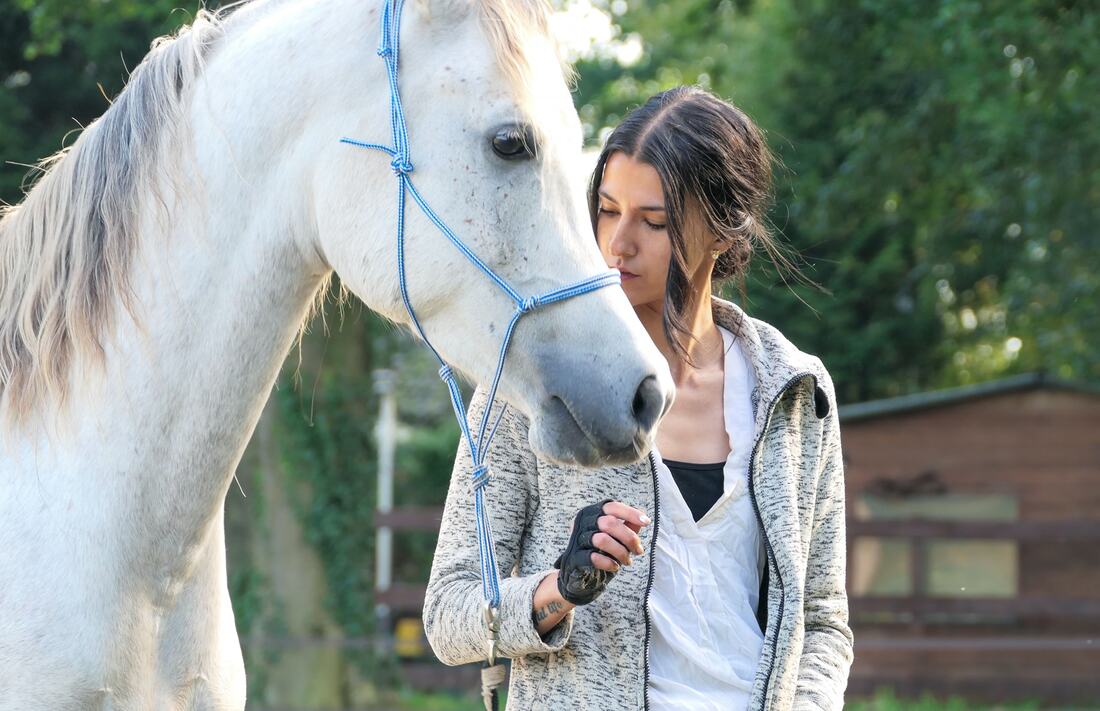
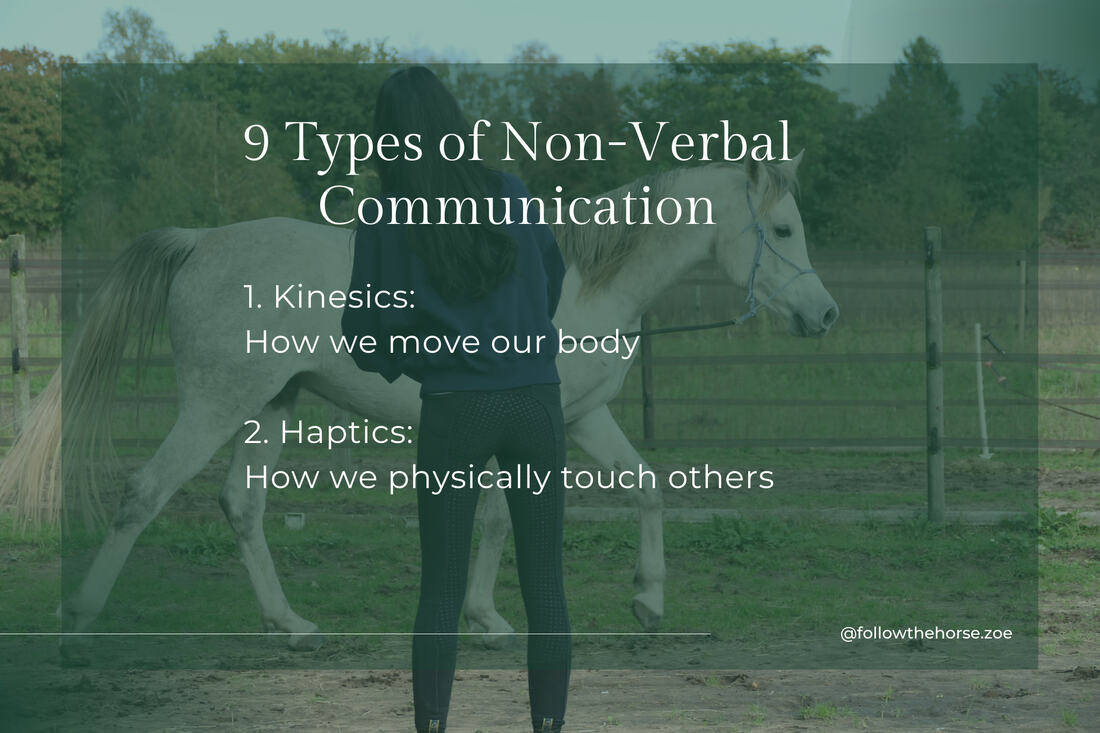
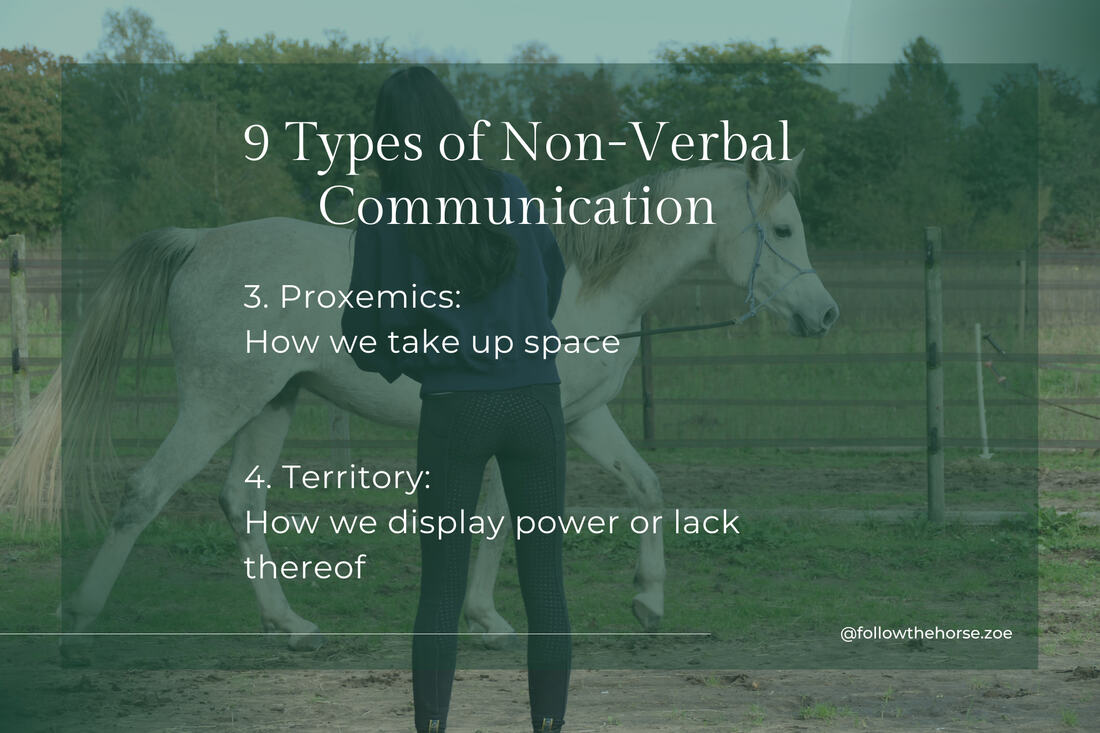
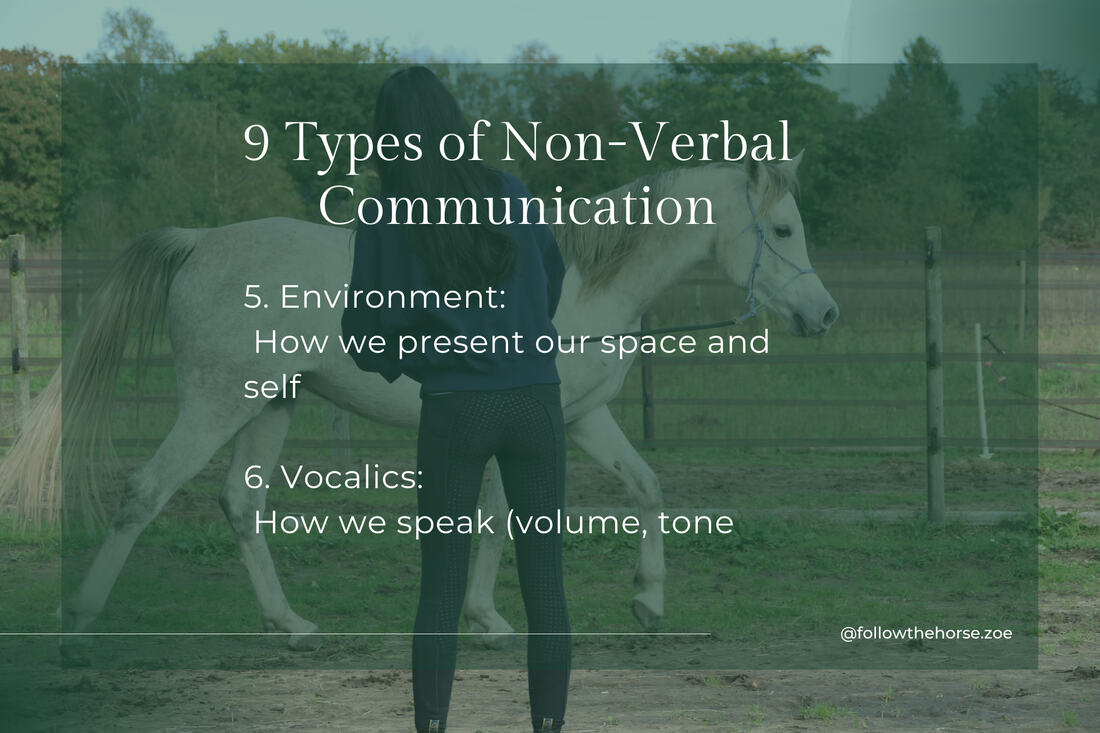
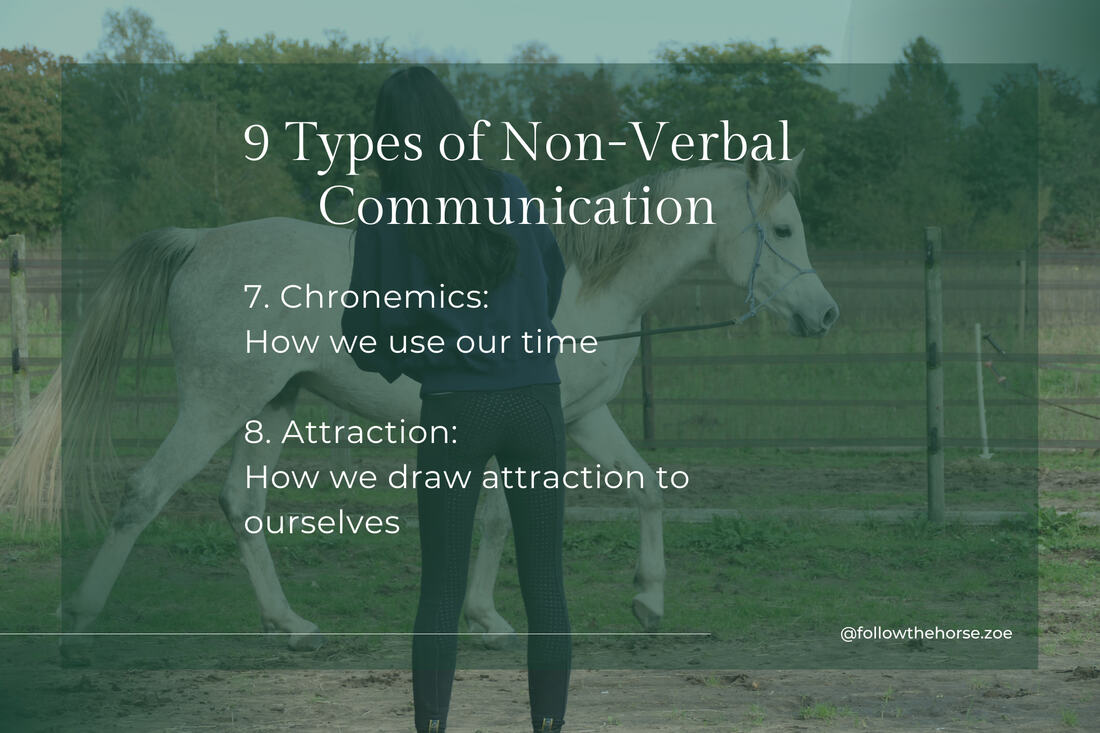
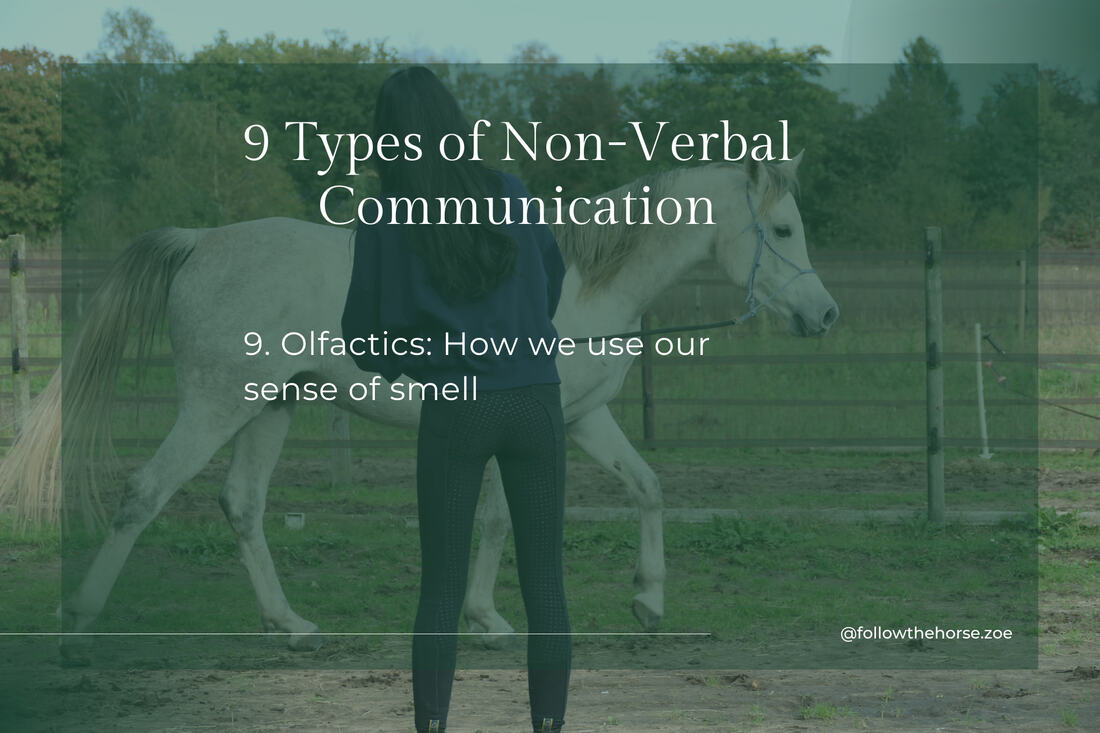
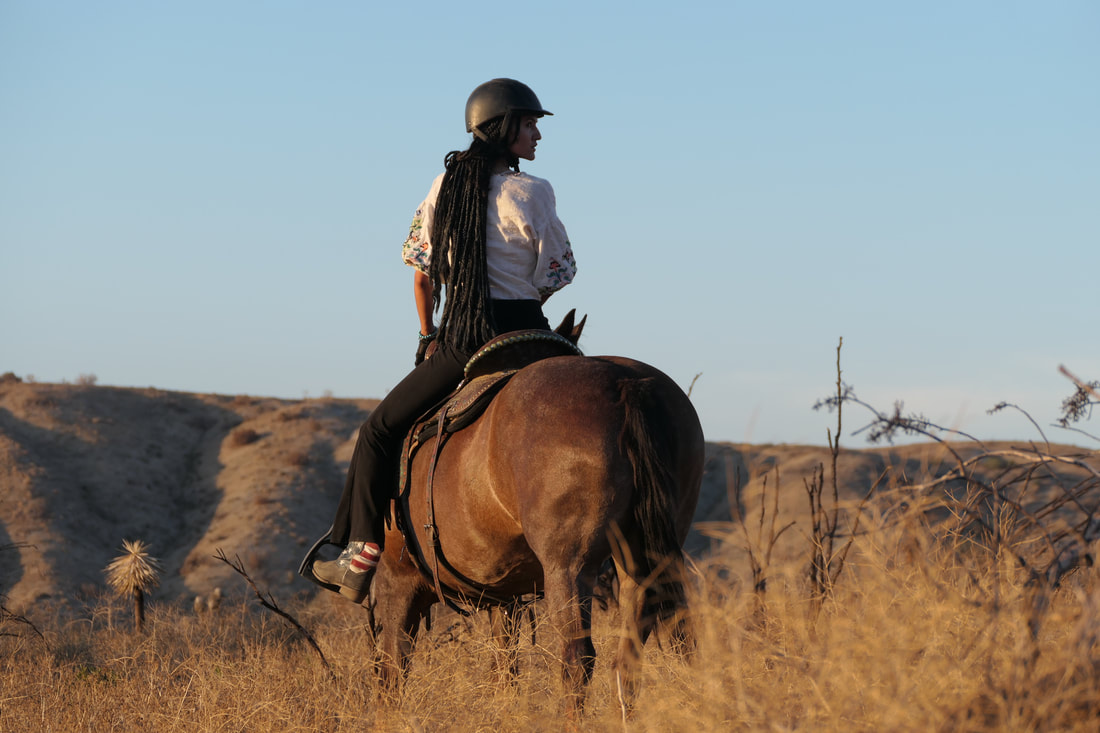
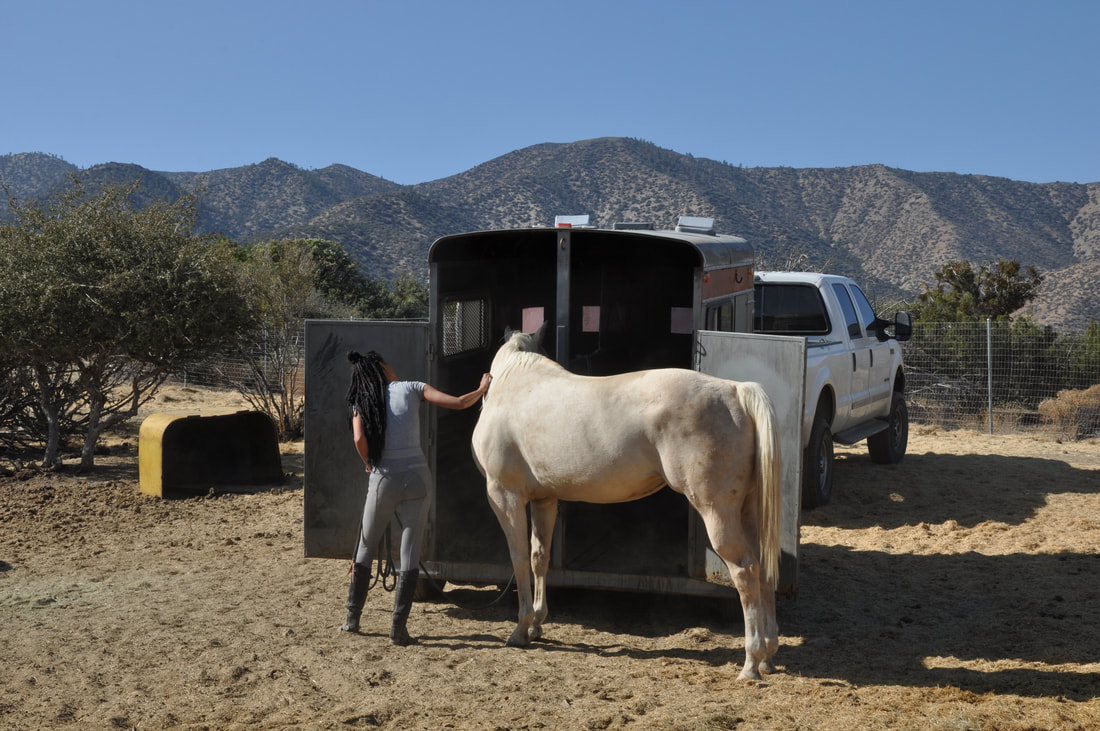
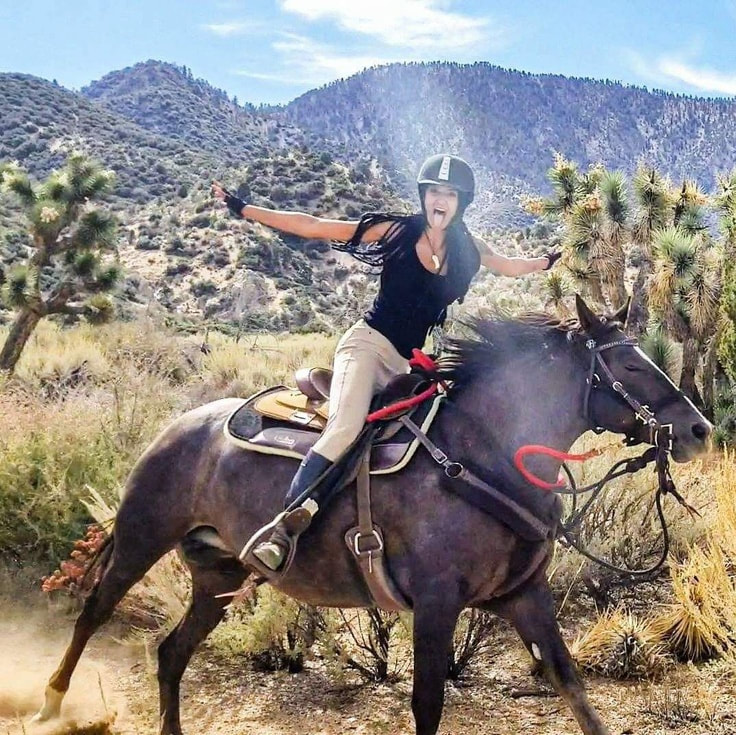
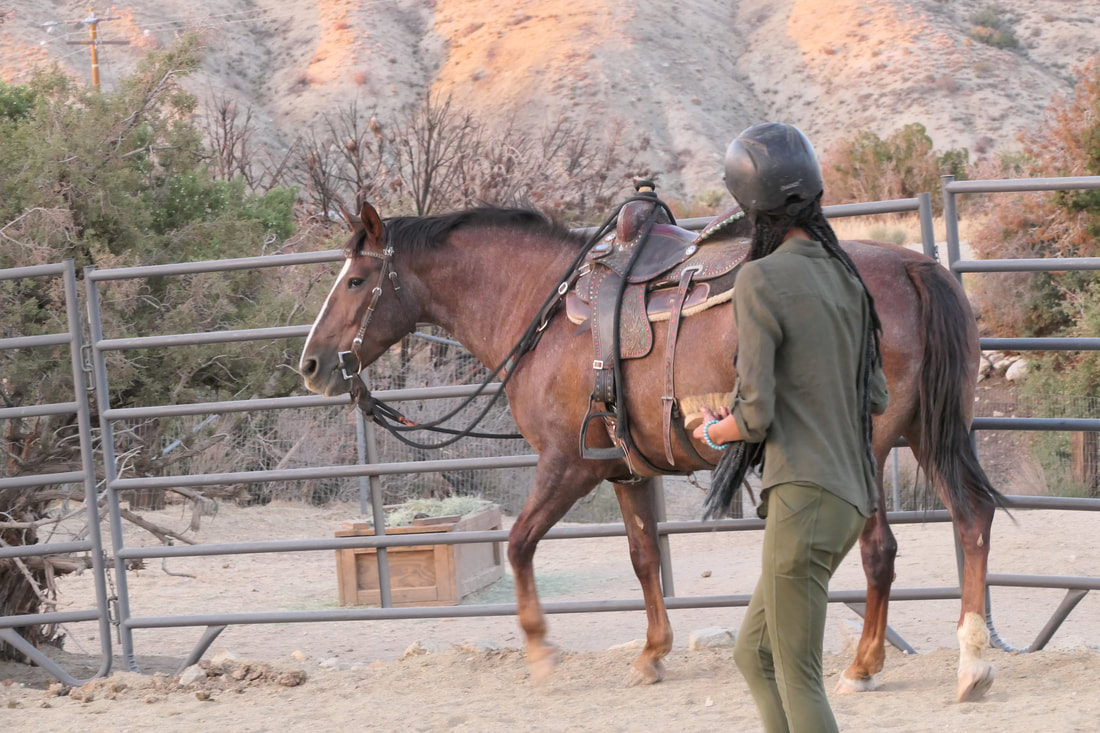
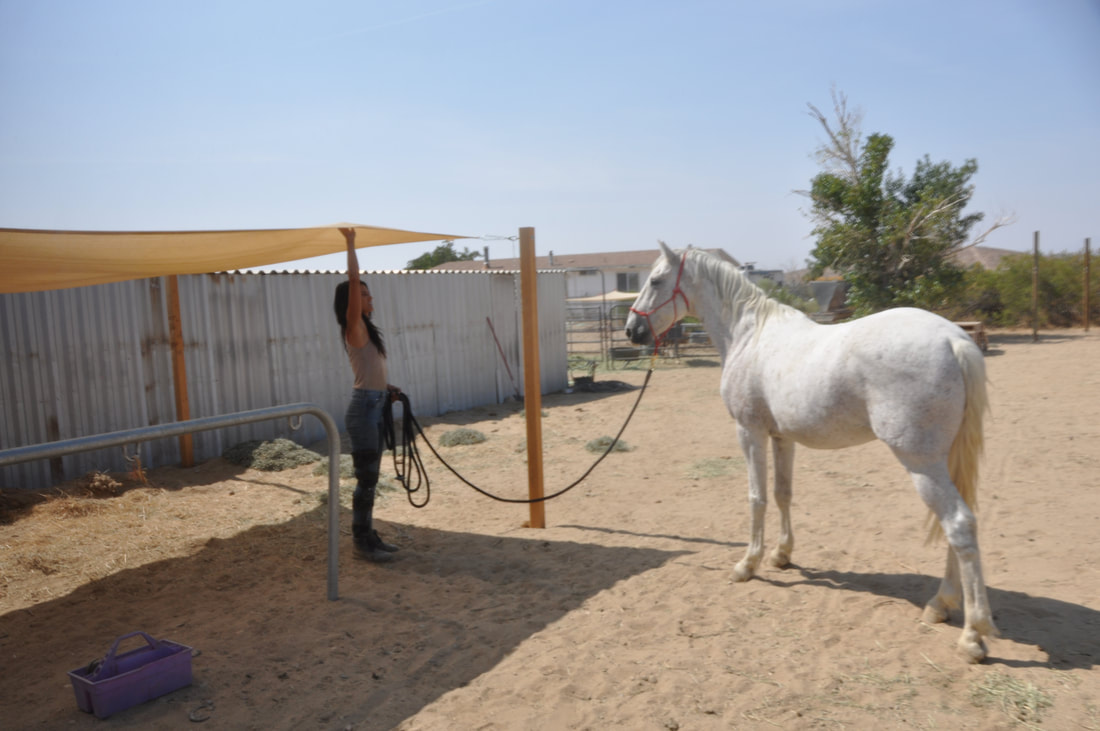
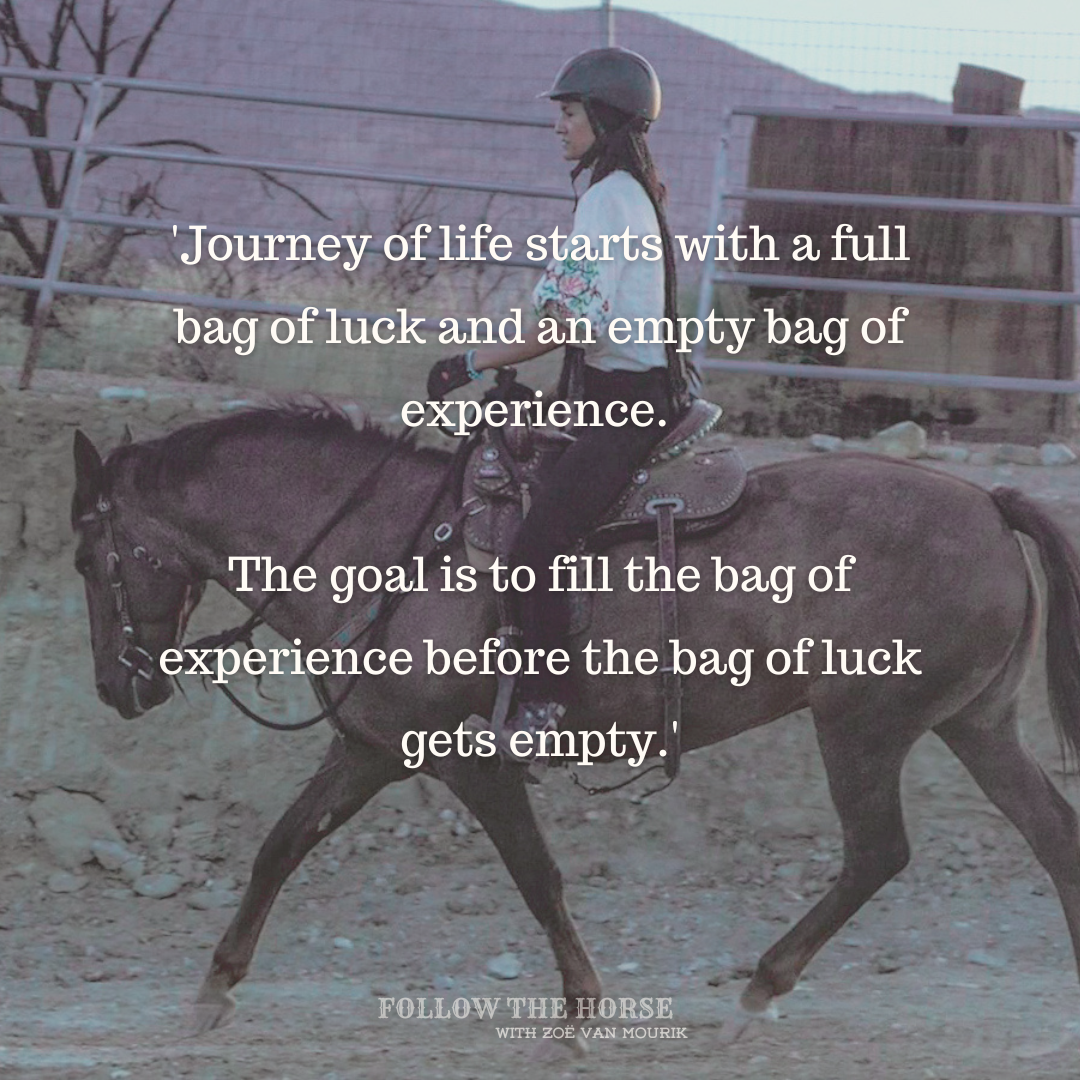
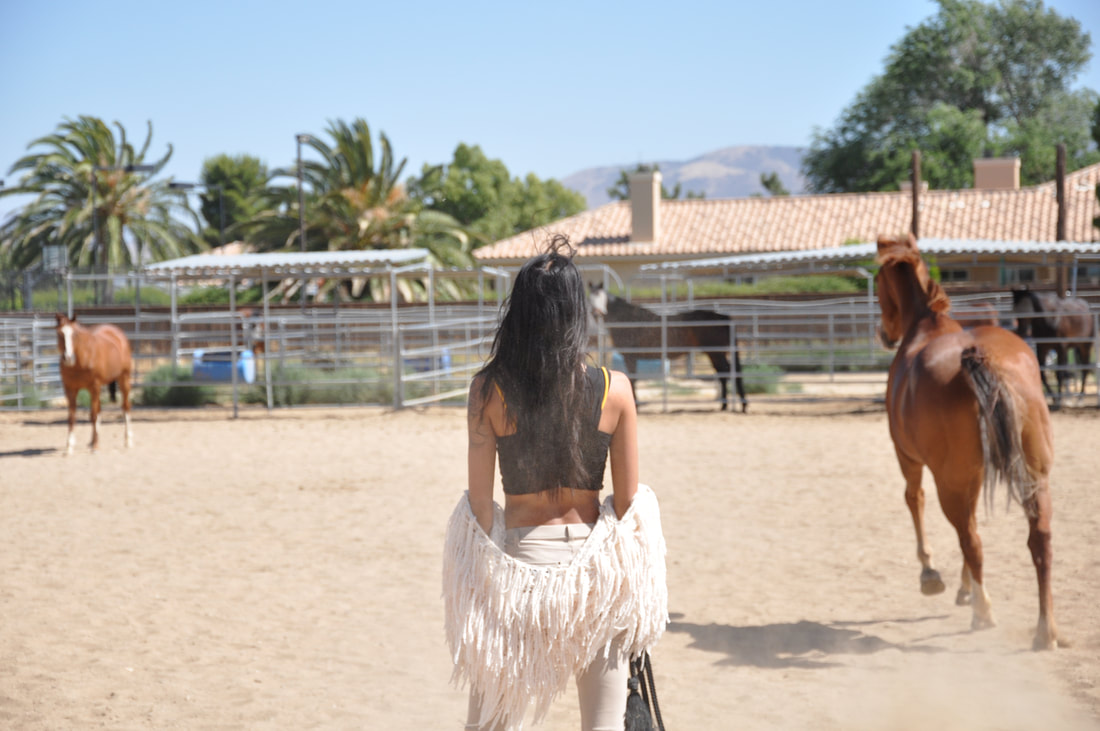
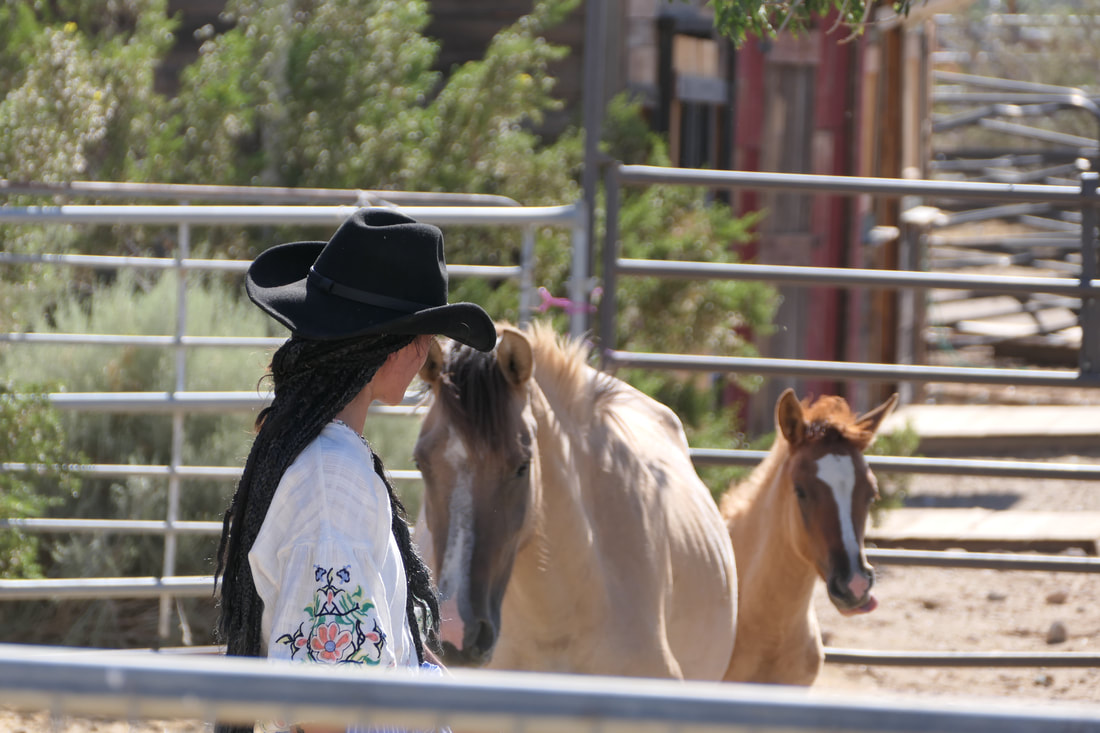
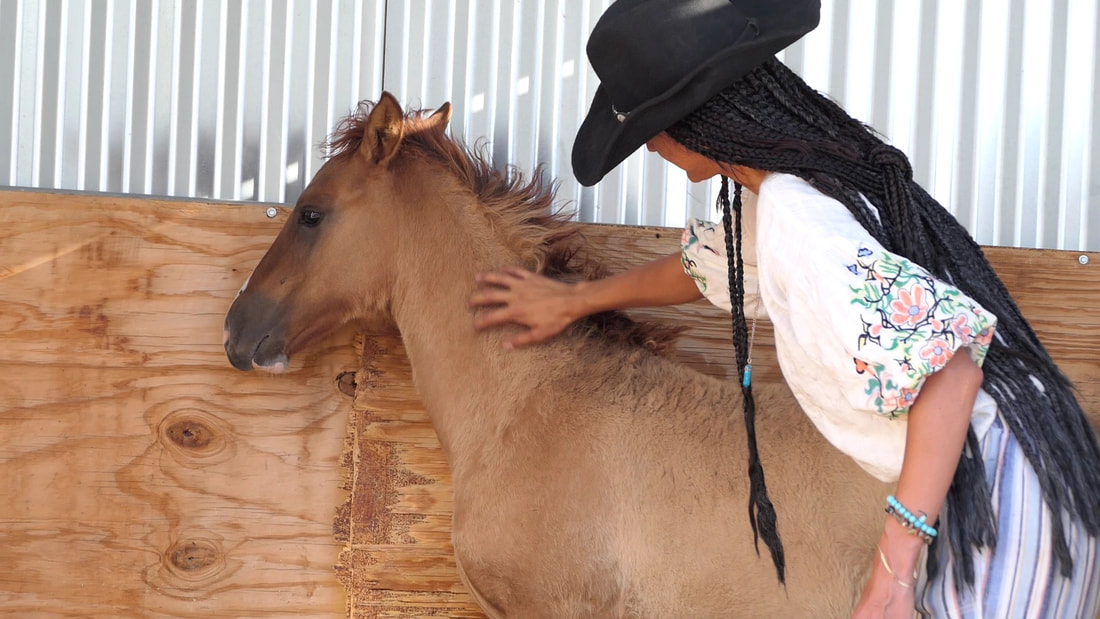
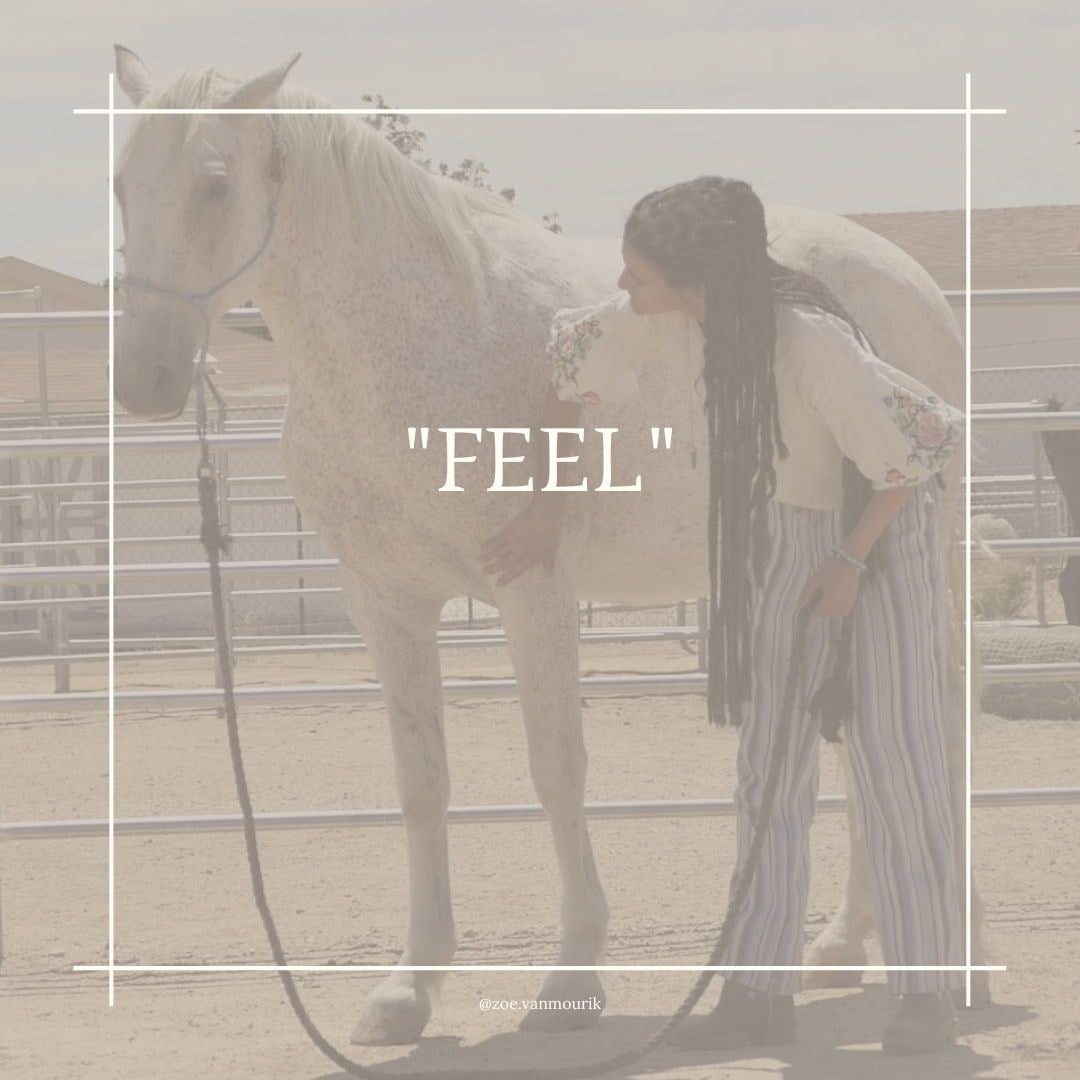
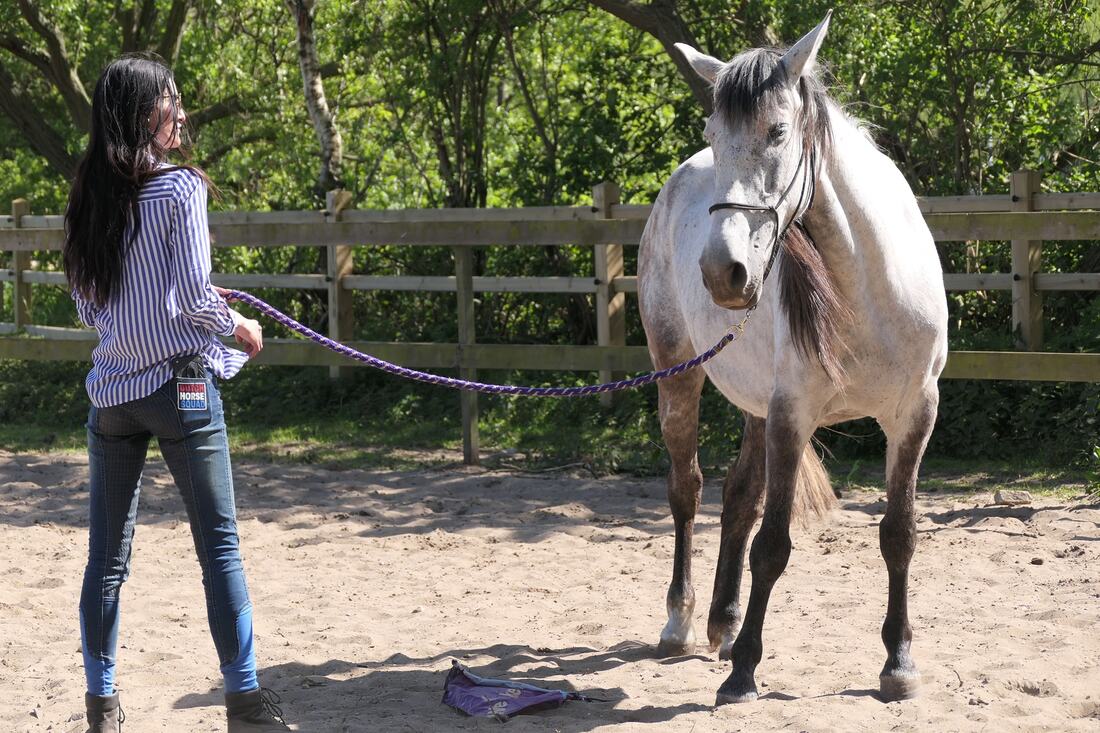
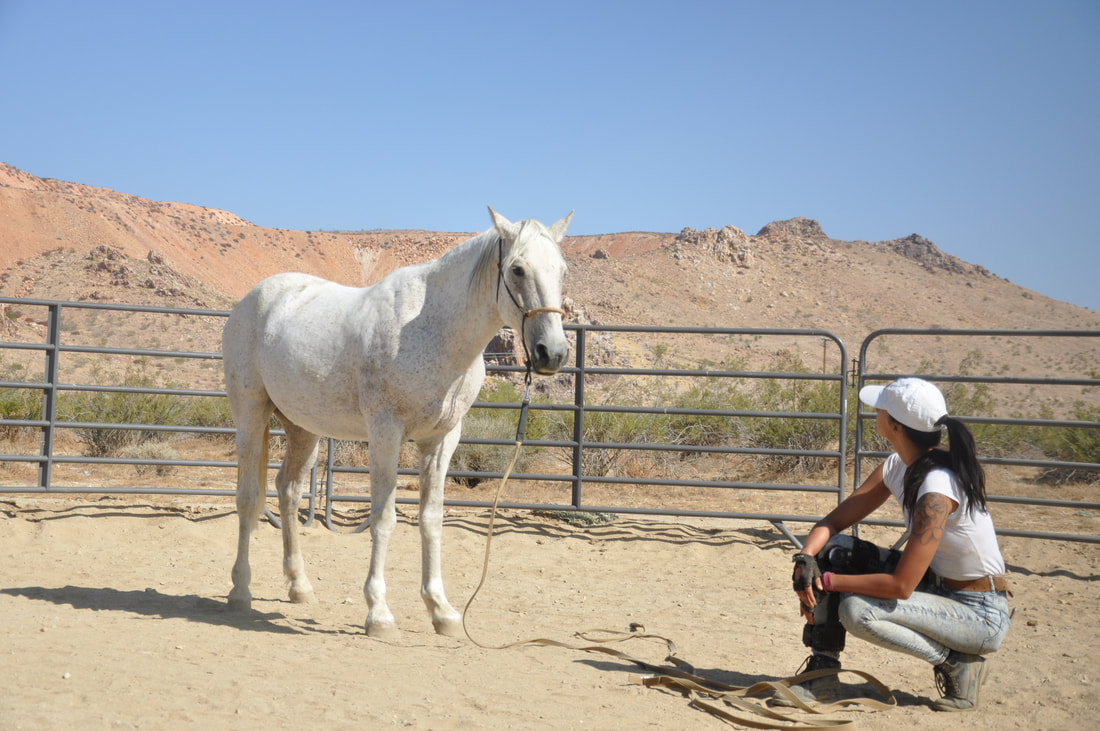
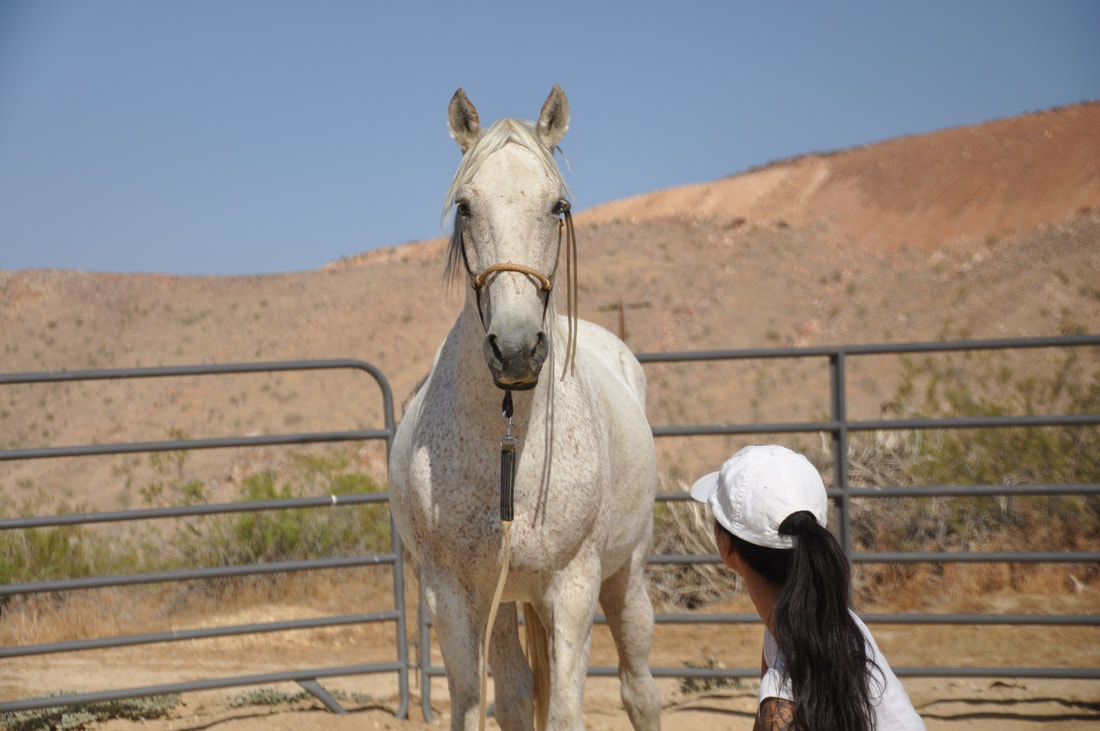
 RSS Feed
RSS Feed

